
Trip to Chiapas by HoCoFoLa Delegation
March 20-26, 1999

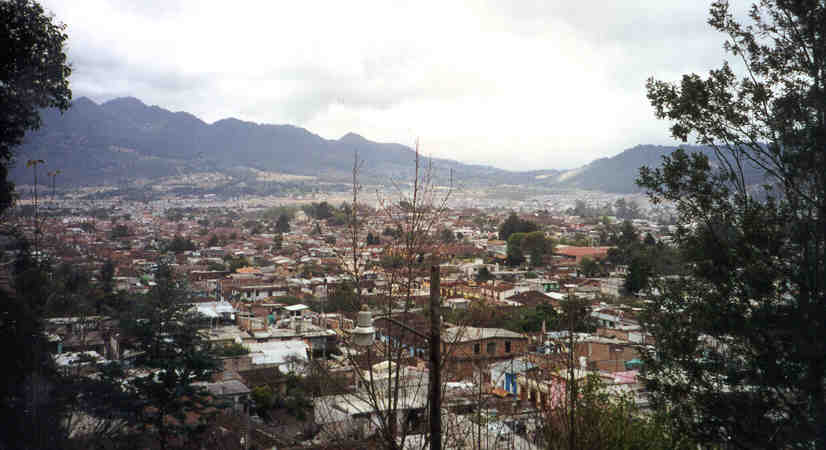
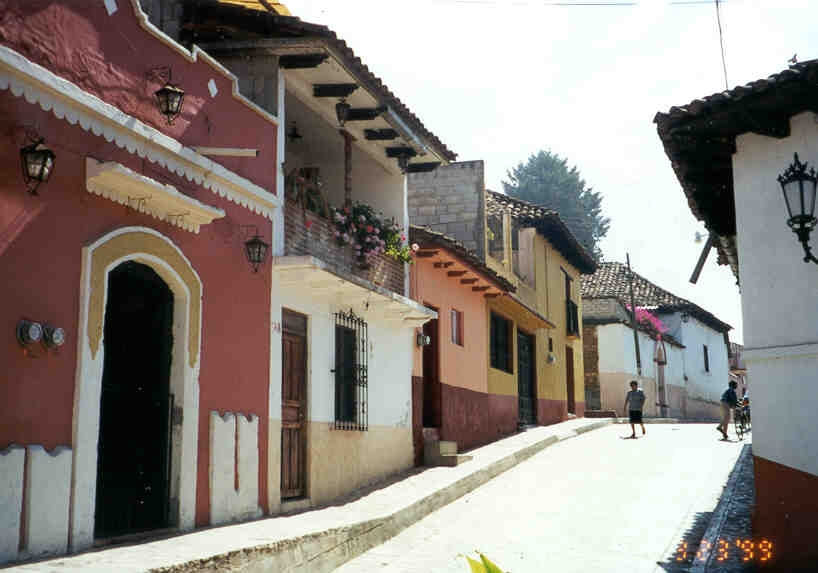
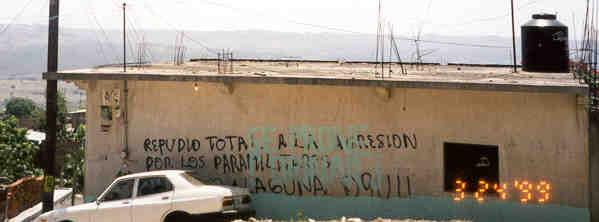
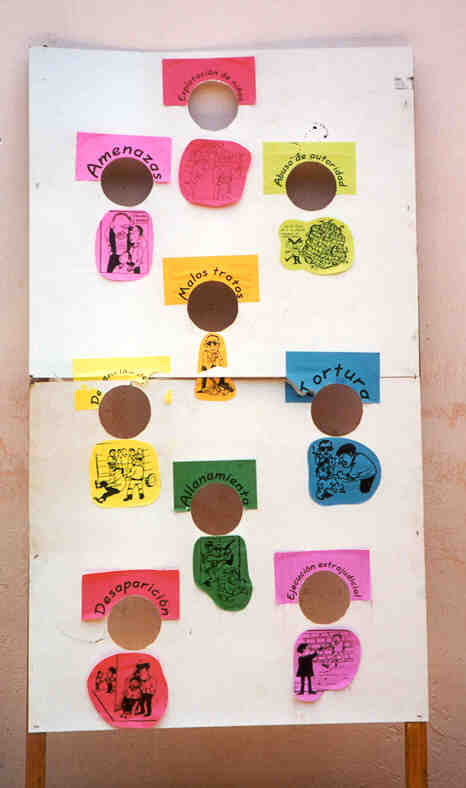
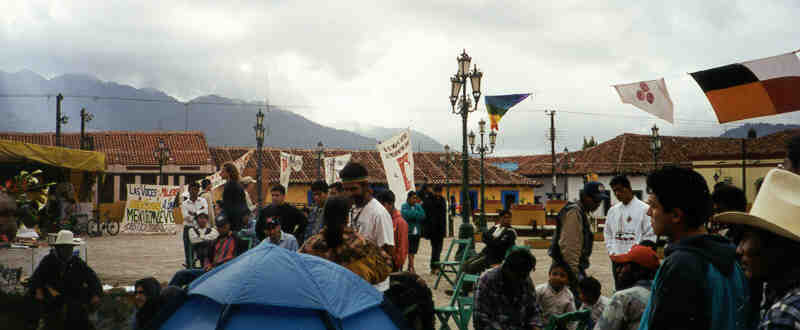
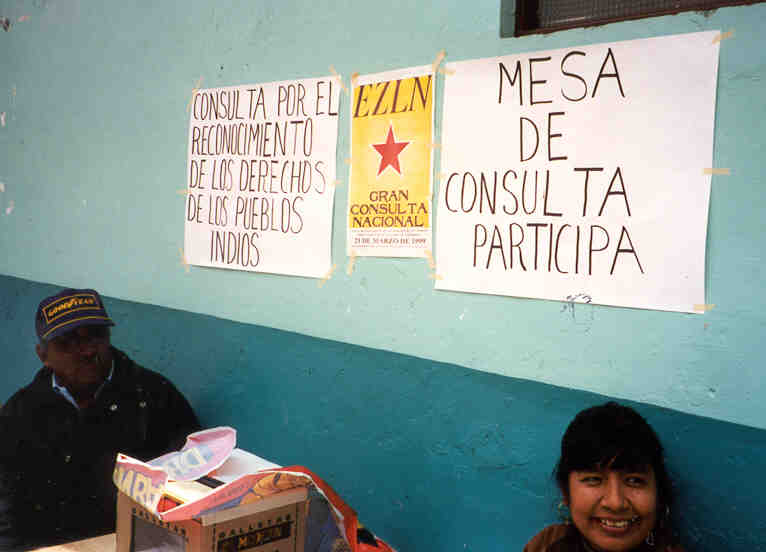
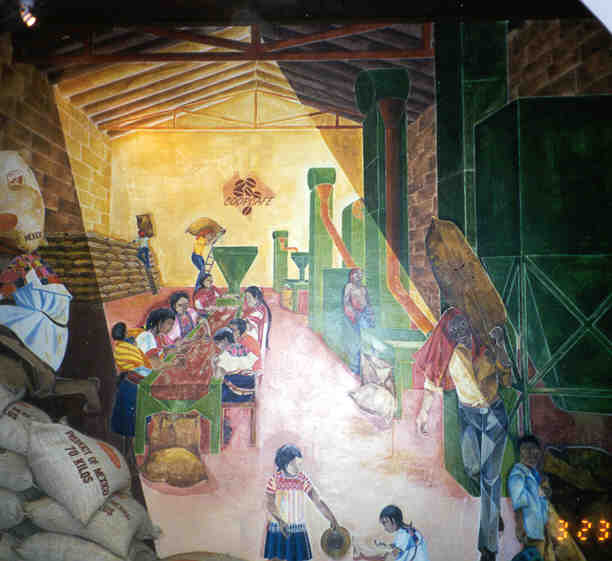
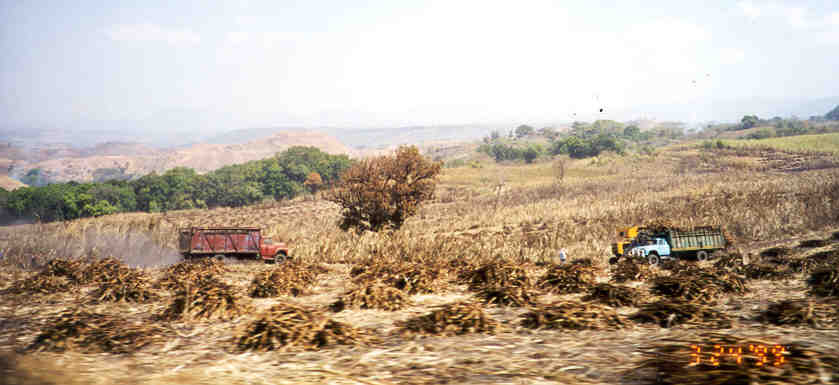
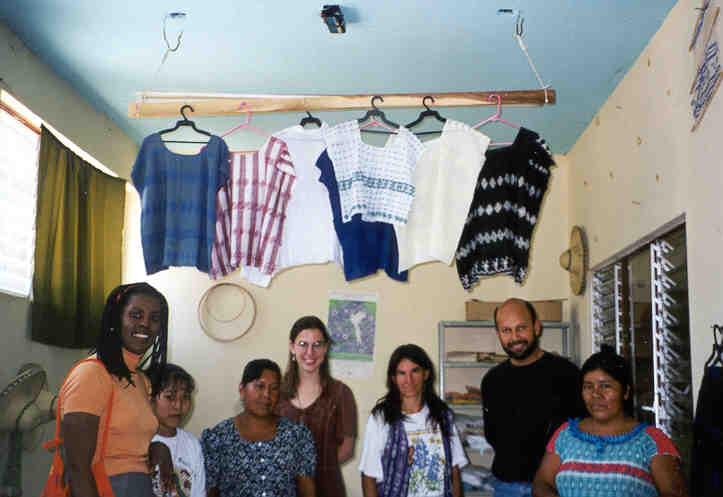
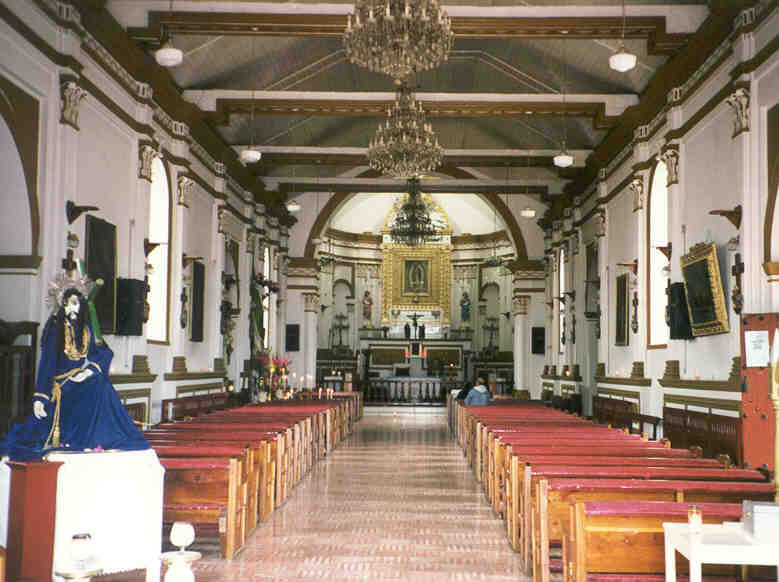
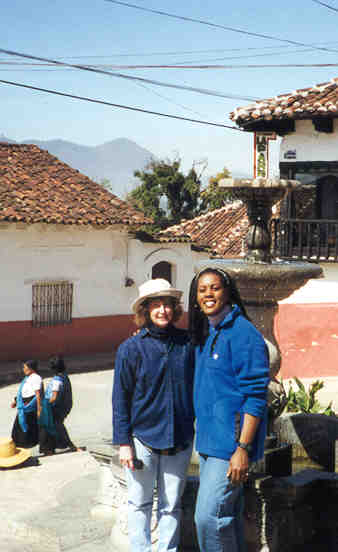
� A ceremony organized by the government honoring the only indigenous president of Mexico and attended only by men in security force uniforms, boys in school uniforms, and well-dressed dignitaries;
� A parade celebrating spring, that resembled a parade we might see in the U.S., featuring flowers and TV cartoon character puppets.
� A group of indigenous men, women, and children sitting silently on a curb in front of a human rights office while their spokespeople inside relate how they�d been expelled from their village because of their religion.
� Ghost store. We visited a town of about 25,000 with a long history of land disputes. Paramilitary forces, which are an outgrowth of the armed guards hired by large landowners, have targeted those seeking land and land titles since theirs were expropriated in the 1960's for hydroelectric dams. Now occupied by the state police, the town is also home to a cooperative with a membership of 120 women who weave cloth and sew it into items to sell. In July, 1996, paramilitaries ransacked their store/office and stole 180,000 pesos they had just received as a loan. Several men associated with the cooperative were hauled off to jail on trumped-up arms charges and spent more than 10 months incarcerated. Because of the polarization and poverty in town, few people come to the store to buy the textiles. Currently the women rely on marketing their goods in larger towns which are at least 1 and a half hours away. The cooperative is struggling to survive
� Nearby, in offices of an opposition group allied with the cooperative, a shrine exhibits the photos of as many as 35 people killed over the last 25 years in land disputes.
� Barefoot women, hunched under parcels carried on their backs, coming down to the highway from their homes in the countryside mountains at sunrise .
� Smoke billowing from fires to clear forests for planting juxtaposed with signs painted on rocks, imploring people to save the ecosystem and not use slash and burn methods.
These are a few of the many vignettes we encountered on a recent visit to Chiapas. The HoCoFoLa delegation included a volunteer, Rosa (not her real name), who will be spending nearly a year in Chiapas as part of the Chapas Partnership Project of Howard County Friends of Latin America . Rosa wanted to get a feel for the area before making a final commitment. We also wanted to get feedback from people in Chiapas about the potential efficacy of our proposed project, and we wanted to get to know first hand the organizations with which Rosa might volunteer.
The city of San Cristóbal, where we stayed, is not typical of the communities in the countryside which are in the zones of conflict. On the streets and in the restaurants of this colonial city, we saw tourists in addition to some foreigners who had come on fact-finding delegations. The amenities of small city life are abundant for anyone who has the money to pay for them. In contrast, we often encountered young children and old people selling chicklets or begging for money. Poverty abounds but can be obscured by those who wish to look away.
The reader may be wondering why Rosa is using a pseudonym. A number of foreigners who have come to Chiapas on fact-finding missions or to work with rural community members on various projects been expelled or deported from Mexico for "interfering in Mexican politics." A special human rights visa is difficult to obtain and is valid for 10 days. Our only realistic option is for Rosa to obtain a tourist visa. But she runs the risk of being falsely accused of interference.
Prior to the trip, we had been in touch by e-mail with a number of people in Mexico involved in working for peace with justice. We had the privilege of meeting with a number of these in person and of learning about the work of others who were not able to meet. The descriptions below provide an idea of the breadth of work being done and a glimpse of the types of work Rosa may do:
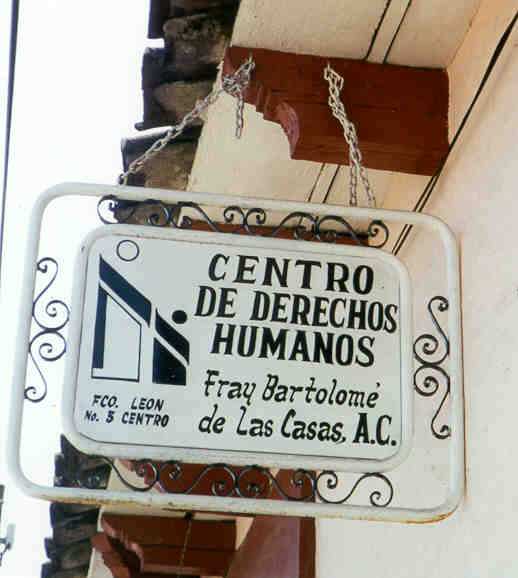
� Fray Bartolomé de las Casas Human Rights Center (http://www.laneta.apc.org/cdhbcasas), an organization of the Diocese, was an important stop of the delegation from Howard County Friends of Latin America. It is a beehive of activity. In addition to taking testimonies and investigating human rights abuses, they write and disseminate reports providing facts and analysis to help people understand the nature of the conflict.
� One group whose members represent diverse faiths is seeking to bring together individuals from religious groups that have been in conflict with one another. Their Ecumenical School promotes religion as a way to achieve reconciliation rather than as an instrument of division and hostility.
� Brigades of concerned Mexicans accompanied campesinos who, when they had initially tried to harvest their coffee, were threatened and intimidated by state security forces or paramilitary groups.
� Voz de Cerro Hueco provides legal assistance and advocacy to political prisoners in Chiapas.
� A new organization is seeking to train local community members in the countryside to document human rights abuses and take testimonies. Currently, in most cases, when human rights abuses occur, victims and community members must travel long distances to file reports.
� Sipaz (http://www.nonviolence.org/sipaz/), established in response to the call made by Bishop Samuel Ruiz for an international presence, seeks through a number of projects, to promote mediation and conflict reduction.
� We joined meetings organized by Witness for Peace (http://www.igc.apc.org/wfp/ ), Global Exchange (http://www.globalexchange.org/), Cloudforest Initiatives ([email protected]), and the Chiapas Media Project (www.chiapasmediaproject.org/). All raise awareness of the situation in Chiapas by organizing delegations of people from the U.S. and other countries interested in learning more about the situation in Chiapas.
� CIEPAC (http://www.ciepac.org/)conducts studies and research to document the situation in Chiapas.
� Enlace Civil (www.laneta.apc.org/enlacecivil/ ) helps people in autonomous communities establish projects in the areas of education, health, micro-production, art, culture, and communication, and helps insure that the communities are included in national and international support networks. (For information about autonomous communities, see articles at http://www.nonviolence.org/sipaz/vol3no3/feate.htm.)
We began our stay by observing the Consulta, the referendum organized and conducted by people involved in the Zapatista movement. The Consulta embodies hope for a better future, for a chance through democratic, non-violent means, for people to express their yearning to participate in the shaping of their destiny and their country�s. We are honored to have been a part of that day, and in Chiapas we found many lessons about courage, community, and taking risks that have meaning to all people, everywhere.

